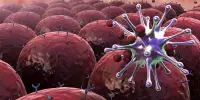There have been some studies that suggest that drinking coffee with milk may have an anti-inflammatory effect on the body. Inflammation is a natural response of the body to injury or infection, but chronic inflammation can contribute to the development of various diseases such as heart disease, type 2 diabetes, and cancer.
Milk contains compounds such as calcium, casein, and whey that have been shown to have anti-inflammatory properties. When combined with coffee, these compounds may help to reduce inflammation in the body. However, it’s important to note that more research is needed to fully understand the effects of coffee with milk on inflammation, and the results of these studies have been mixed.
Can something as simple as a cup of coffee with milk reduces inflammation in humans? According to a new study from the University of Copenhagen, this appears to be the case. The anti-inflammatory properties of immune cells are doubled when proteins and antioxidants are combined. The researchers hope to study the effects on human health.
When bacteria, viruses, or other foreign substances enter the body, our immune systems defend us by deploying white blood cells and chemical substances. This reaction, known as inflammation, occurs when tendons and muscles are overworked and is characteristic of diseases such as rheumatoid arthritis.
Our findings show that the reaction between polyphenols and proteins occurs in some of the coffee drinks with milk that we investigated. Indeed, the reaction occurs so quickly that it has been difficult to avoid in any of the foods studied.
Marianne Nissen Lund
Polyphenols are antioxidants found in humans, plants, fruits, and vegetables. The food industry also uses this class of antioxidants to slow oxidation and deterioration of food quality, avoiding off-flavors and rancidity. Polyphenols are also known to be beneficial to humans because they help reduce oxidative stress in the body, which causes inflammation. However, there is still a lot we don’t know about polyphenols. Few studies have looked into what happens when polyphenols react with other molecules, such as proteins mixed into foods that we eat.
In a new study, researchers at the Department of Food Science, in collaboration with researchers from the Department of Veterinary and Animal Sciences, at the University of Copenhagen investigated how polyphenols behave when combined with amino acids, the building blocks of proteins. The results have been promising.
“In the study, we show that as a polyphenol reacts with an amino acid, its inhibitory effect on inflammation in immune cells is enhanced. As such, it is clearly imaginable that this cocktail could also have a beneficial effect on inflammation in humans. We will now investigate further, initially in animals. After that, we hope to receive research funding which will allow us to study the effect in humans,” says Professor Marianne Nissen Lund from the Department of Food Science, who headed the study.
The study has just been published in the Journal of Agricultural and Food Chemistry.

Twice as good at fighting inflammation
The researchers used artificial inflammation to test the anti-inflammatory effect of combining polyphenols and proteins. Some cells were given different doses of polyphenols that had reacted with an amino acid, while others were only given polyphenols in the same doses. A control group received no treatment.
The researchers discovered that immune cells treated with a combination of polyphenols and amino acids were twice as effective at combating inflammation as cells treated only with polyphenols.
“It is interesting to have now observed the anti-inflammatory effect in cell experiments. And obviously, this has only made us more interested in understanding these health effects in greater detail. So, the next step will be to study the effects in animals,” says Associate Professor Andrew Williams of the Department of Veterinary and Animal Sciences at the Faculty of Health and Medical Sciences, who is also a senior author of the study.
Found in coffee with milk
Polyphenols bind to proteins in meat, milk, and beer, according to previous research by the researchers. Another recent study looked at whether the molecules bind to each other in a coffee drink with milk. Coffee beans are high in polyphenols, while milk is high in protein.
“Our findings show that the reaction between polyphenols and proteins occurs in some of the coffee drinks with milk that we investigated. Indeed, the reaction occurs so quickly that it has been difficult to avoid in any of the foods studied thus far” Marianne Nissen Lund agrees.
Therefore, the researcher does not find it difficult to imagine that the reaction and potentially beneficial anti-inflammatory effect also occur when other foods consisting of proteins and fruits or vegetables are combined.
“I can imagine that something similar happens in, for example, a meat dish with vegetables or a smoothie, if you make sure to add some protein like milk or yogurt,” says Marianne Nissen Lund.
Both industry and academia have recognized polyphenols’ significant benefits. As a result, they are researching how to add the appropriate amounts of polyphenols to foods in order to achieve the best quality. In this regard, new research findings are also promising:
“Because humans do not absorb a lot of polyphenols, many researchers are looking into ways to encapsulate polyphenols in protein structures to improve absorption in the body. This strategy has the added benefit of enhancing polyphenols’ anti-inflammatory effects” Marianne Nissen Lund explains.
















